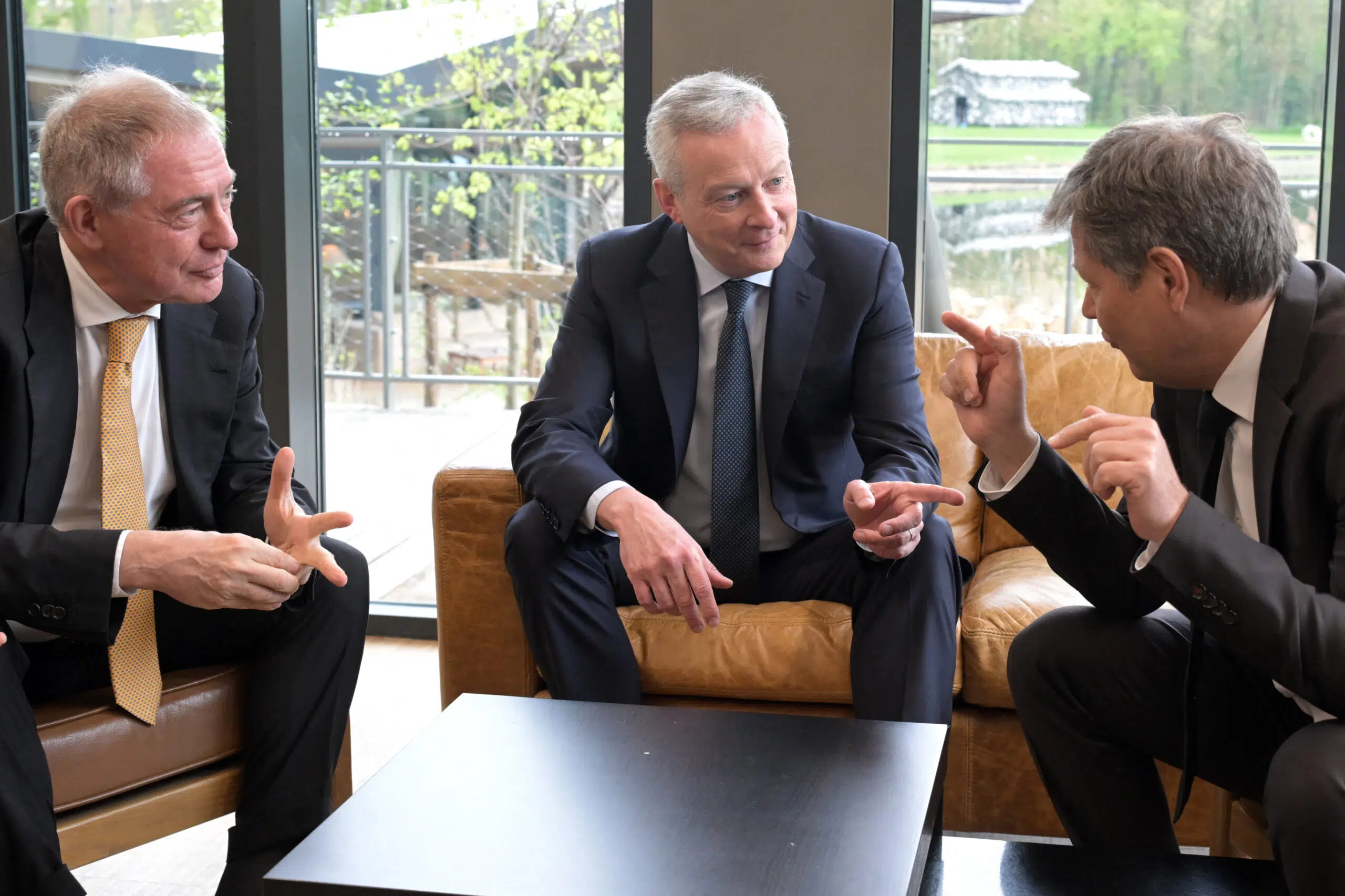Brussels – Extend administrative exemptions already provided for European small and medium-sized enterprises to companies with up to 500 employees and introduce mechanisms to tie a significant portion of European procurement to a preference for firms from the 27 member countries. From the trilateral meeting between the bloc’s three largest economies – France, Germany and Italy – comes a call to move “from a consumer economy to a producer economy”.
The two proposals were put on the table by Bruno Le Maire, French Minister of Economy, Finance and Industrial Sovereignty. Listening to him at Hangar Y in Meudon just outside Paris were Robert Habeck, Germany’s Minister of Economy and Climate Action, and Adolfo Urso, Italy’s Minister of Enterprise and Made in Italy. The three recognized “the need for urgent action to unlock the technological and innovative potential of European companies,” as the joint statement drafted at the end of the proceedings reads.

The recipe discussed by ministers from Paris, Berlin, and Rome involves “combining well-targeted support for strategic industries while promoting a high level of competition in the single market and reducing bureaucratic burdens.” The imperative to be pursued is that “Europe must remain an industrial powerhouse,” and the underlying principle remains the industrial plan of the Green Deal.
To “unleash the full potential” of producers across Europe, in line with what the European Commission has already envisioned overwhelmed by farmers’ protests, the first point is to “ambitiously eliminate unnecessary administrative burdens.” Simplify and speed up procedures regarding access to European funding programs and state aid, especially for SMEs, reduce reporting requirements, and, according to Le Maire’s proposal, broaden the definition of SMEs to extend exemptions to firms up to 500 employees.
“One of the main pillars of this strategy is simplifying and reducing bureaucracy. Regulations are expensive,” the French minister confirmed. The second pillar is ensuring a fertile environment for public and private investment, which is key to the success of the dual green and digital transition. The three wealthiest capitals insist on moving closer to the realization of the European Capital Markets Union but also on making state aid approval procedures easier. Primarily to provide targeted support to companies in the transition process and the most strategic industrial sectors.
To ensure a “strong and resilient” economic base for the continuation of the double transition, the third way forward is to ensure “effective competition in the single market and adequately address structural competition problems in the global context.” In this context, Paris made the second proposal to introduce a preference mechanism for a significant part of European procurement to European companies. European industrial policy “must protect European production and workers from unfair and stressful competition coming from Asia and the United States, which have implemented significant protectionist measures that impact the European system,” Urso said on the sidelines of the meeting. Rome agrees with “all those measures that can make it possible to move from the Europe of consumers to the Europe of producers,” including the possibility of a competitive advantage for the bloc’s companies in tenders.
English version by the Translation Service of Withub

![Un drone. Alla Bei si chiede di investire di più in tecnologie a duplice uso. [foto: Wikimedia Commons]](https://www.eunews.it/wp-content/uploads/2024/03/Drone_Mavic_Pro_may2020-350x250.jpg.webp)






